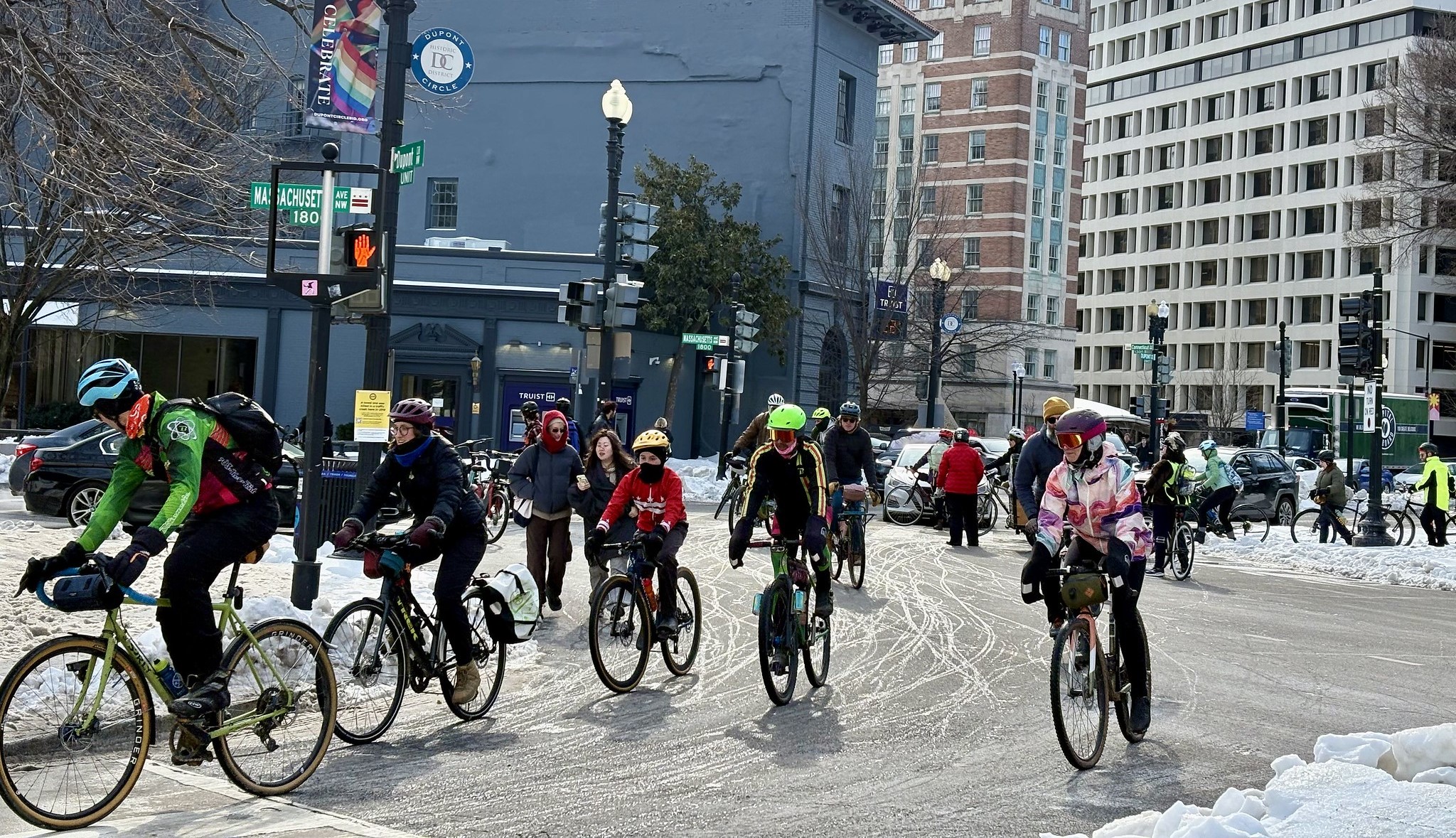Here's what's grabbing our attention around the Streetsblog Network today:
The Case for Subjectivity in Planning: Professional standards dictate that planners are supposed to be passionless bureaucrats who can administer city policy while putting their personal feelings aside. That, however, is a recipe for miserable planners and uninspired plans, says the "Subjective Planner" at Network blog Bikeside LA. "I have come to a realization that government planning as a career is intent on destroying whatever heart and utopian ideas you went into it with. The truth is that most planners come out of college with some amazing ideas and crazy good dreams of wonderful communities where you can walk to the market or mom can borrow a cup of sugar from next door. A place where kids still ride their bikes to school…"
Rather than remaining in offices reviewing code, planners should be out in the community, interacting with residents, says the Subjective Planner. "I go into every meeting with one thing on my mind, 'If they know what I know and they care like I care, then we are probably going to find a lot of common ground.' Ultimately I am there to sell a community good planning concepts and practices because most fear of change comes from not knowing or understanding the concepts that the change is based on."

Will Portland Stay Committed to Its Green Transportation Priorities? If there's one city in the country that has its priorities straight when it comes to transportation, it's Portland. Of course, political pressures sometimes get in the way of even the best laid plans. According to a new addition to Portland's developing 2030 Bike Plan, pedestrians and cyclists are to be given top priority in local transportation decisions. At the other end of the spectrum, single-occupancy vehicles are supposed to receive the lowest billing. Except, often times it seems the city's priorities run in exactly the opposite direction, says Jonathan Maus at Bike Portland.
Maus reports that a series of bike projects in the city's Bike Plan are at risk of being eliminated. Portland bike advocates need to continue to pressure public officials to adhere to the highly-touted plan, lest they see the hierarchy reversed. "This is Portland. If it can't happen here, the transportation future of our entire country looks very dim," says Maus.
Small Cities Embrace "Slowness": The slow foods movement was born near Rome, as an outgrowth of a protest to the opening of a McDonald's near the Spanish Steps. The idea was to reject the "standardization and corporatization of taste and culture." A new movement called Cittaslow seeks to apply those principles to city planning in small cities, reports Itir Sonupariak at The City Fix. Once again, the movement has its roots in Italy, this time a small town near Tuscany. But the concept has been spreading since its start in 1999. Currently 140 cities in 20 countries have adopted Cittaslow's principles. "California’s Sonoma Valley, Fairfax and Sebastopol have all acquired the movement’s goals into the urban planning process with goals to preserve and enhance the quality of life for all residents, highlight local assets and specialties, and preserve the environment," writes Sonupariak. Participating cities must be less than 50,000 and must pay dues equivalent to $872. Member cities are held to certain environmental standards, as well as the goal of safe and accessible transportation for everyone. Other principles include preserving historic buildings and maintaining green space. A full list of the Cittaslow framework is available here.





